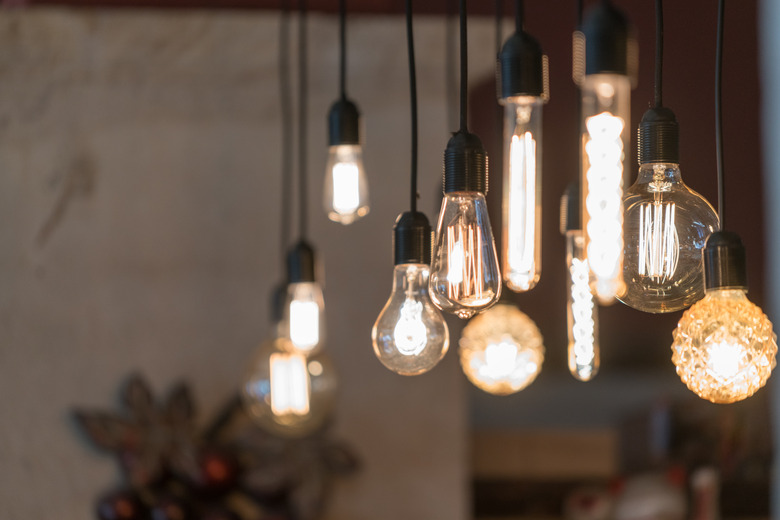What Causes Light Bulbs To Explode?
When you were a kid, if a light bulb exploded near you and your friends, that most likely meant that you were in the presence of a ghost. Now that you're older and wiser, you're most likely know that there is an electrical justification for a light bulb burst, rather than a superstitious one.
If you could go back in time and educate your younger self, then the first thing you should tell them is that there are a multitude of reasons for a light bulb to explode — even down to the oil on our hands.
Read more: Daylight Vs. Soft White Light Bulbs
Incandescent vs. Halogen
Incandescent vs. Halogen
Incandescent light bulbs are the standard light bulbs that many of us own. These types of light bulbs have been used for over 100 years and are the original form of lighting. According to Bulbs, these types of light bulbs come in different sizes, voltage ratings and degrees of light output. The inside filament (the conducting wire that forms part of an electric bulb) is heated by an electric current that is passing through at a high temperature until it glows.
Halogen light bulbs are the most common type of bulb to explode. Not only are they hotter than incandescent light bulbs, but if there is any form of oil on the light bulb, that is most likely why your light bulb exploded. When you install or change halogen light bulbs, don't touch them with your hands. Always try to use a paper towel or cloth gloves. This will prevent any oil from getting onto the lightbulb.
Read more: How Does Cold Temperature Affect Light Bulbs?
Light Bulb Exploded
Light Bulb Exploded
According to Pacific Lamp Supply Company, the most common reason that lightbulbs can explode is if the manufacturers don't put enough insulation at the base of the bulb. This causes the base to melt, and the gas that is stored in the light bulb will leak out. When the gas leaks out, the pressure difference will make the light bulb explode. There could be other reasons why your light bulb exploded, though. Faulty manufacturing and wiring could be the culprit. Also, if an incandescent bulb does not have a high-quality seal, condensation can get inside the bulb and cause an explosion.
Light Bulb Safety Measures
Light Bulb Safety Measures
Before a light bulb burst, there are several precautions you can take to avoid any damage to your home or yourself. Make sure that you keep all of your lightbulbs away from water. If you need a lightbulb in areas with high humidity, such as outdoors or in a bathroom, try and get an outdoor or well-sealed bulb.
Although it may be tempting to buy inexpensive light bulbs, try and always purchase high-quality products. If, by chance, your light bulb does explode, wait a bit before you go and clean it up. This will give the shattered glass time to cool down, and then you can sweep it up. When you're cleaning up glass shards, you have to be super meticulous. Shattered glass travels quite far, and you don't want to cut yourself on any leftover glass.
